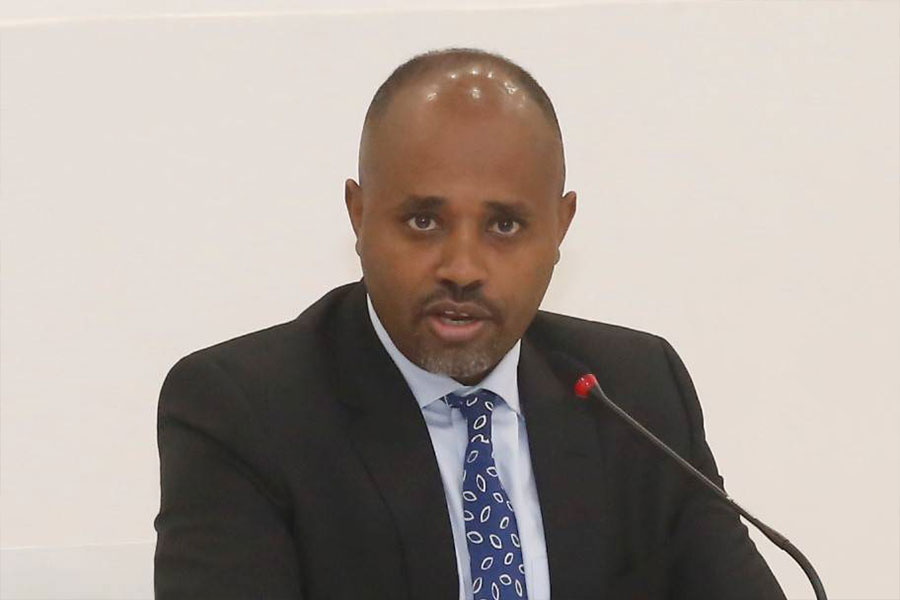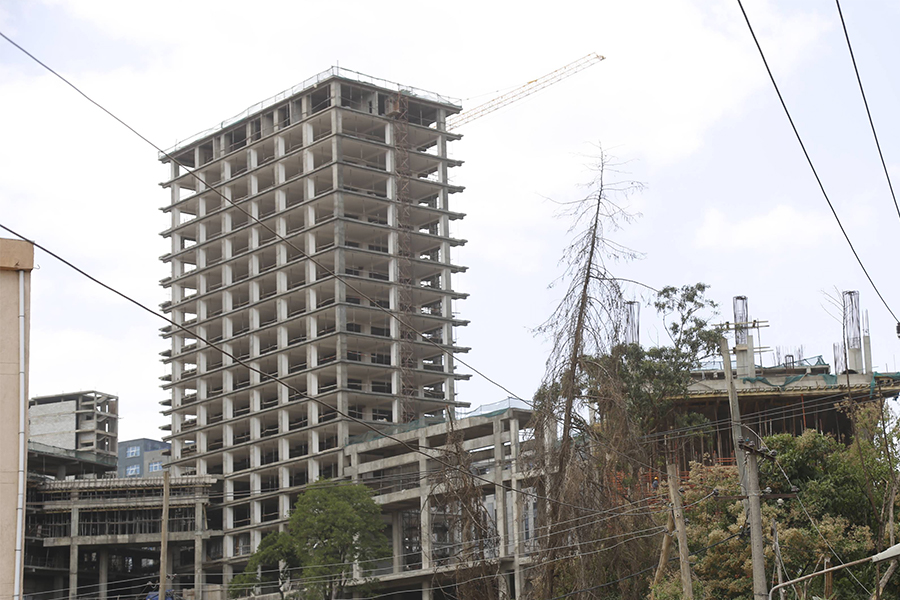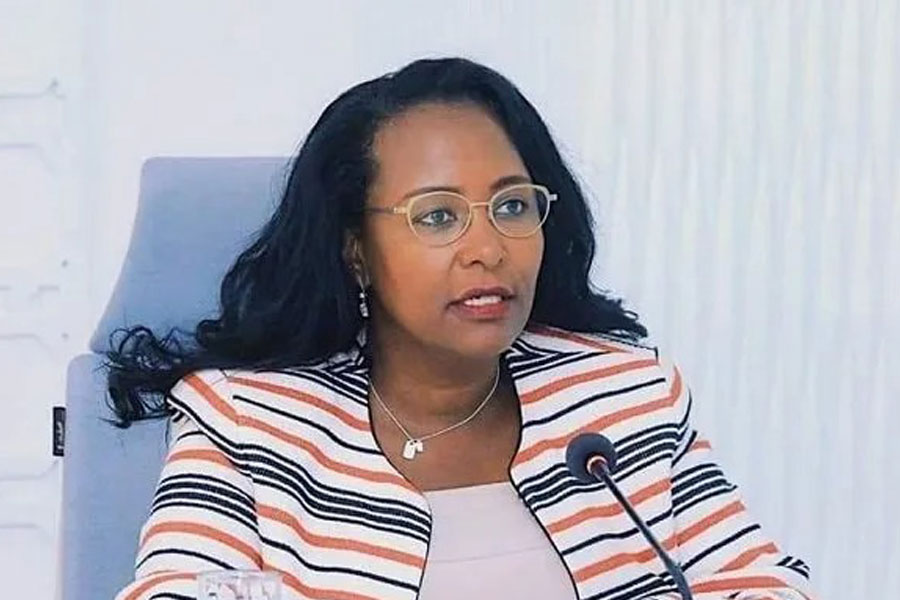
Fortune News | Nov 23,2019
A bill that gives the federal government full authority to collect and administer revenues from concurrent taxes reached the final drafting stage. The bill also affirmed that the regional states could collect these taxes after being delegated by the Ministry of Revenues.
Collection and levy of taxes in profit, sales, excise and personal income on enterprises; on dividends; and taxes and royalties from large-scale mining, petroleum and gas operations now fall under the federal government's exclusive mandate.
Although Article 98 of the Constitution states that the federal and regional governments must levy and collect certain taxes jointly, there has not been a legal framework that clearly defines the Ministry's role and those of regional authorities.
The draft proclamation, which was prepared by a team from the Tax System & Regional Support Directorate at the Revenues Ministry, has been reviewed by senior officials of the Ministry, retouched by the Ministry's legal department, and reviewed by the standing committee for subsidy budget and shared revenues affairs at the House of Federation. Regional offices and experts in the areas also gave comments on the bill.
It is currently pending at the Ministry of Finance for policy compliance reviews before it is sent to the Council of Ministers and the parliament for legislation.
The past system lacked transparency and accountability, and the proclamation will allow for a transparent information transfer and create a sense of accountability, according to Bahru Awol, head of the revenue accounts administration directorate at the Ministry.
The Ministry traditionally distributes the appropriate revenue to the regional administration within a month of collecting taxes.
"If a regional state wasn't paid their share," said Bahru, "there is no system that will hold the Ministry accountable."
The new draft outlines that revenue distribution should be completed within 30 days after tax collection has been declared.
Regional states collecting shared revenues are obligated to their collections by deadlines set by the Ministry; if regions do not abide by the schedule, an equivalent amount of revenue will be held back from upcoming shared revenue or subsidy shares, which are to be sent to the regional state, according to the bill.
There was no well-established auditing mechanism previously in use, according to Bahiru.
The bill declares that the directorate will form an auditing system in collaboration with regional governments. The system will allow the federal and regional governments to conduct auditing together or separately.
Abere Asfaw, legal director at the Ministry, says that one of the bill's aims is to establish a structured working procedure by which the new subsidy and shared revenue distribution formula is implemented efficiently.
The formula was revised by the House of Federation in 2018 and came into effect at the beginning of this fiscal year. It has made major changes in concurrent taxation as well as subsidy division.
The draft also mandates that the Ministry host an evaluation platform where different stakeholders come together every six months to review past performances. Although it is an existing trend, it has been paused in light of the Novel Coronavirus (COVID-19) pandemic, according to Bahru.
A circular sent out by the House of Federation on July 5, 2019, suggests that an inter-regional working relationship should be established or nurtured to set up a system to oversee and control the administration of shared revenue distribution. The same circular also points out the federal and regional revenue administration bodies should cooperate to enable a transparent and efficient revenue collection and distribution mechanism.
Another draft proclamation in the pipeline from the House of Federation aims to define the institutional structure of the revenue subsidy and distribution scheme. This draft proclamation, currently awaiting approval from the legislative body, will establish a federal subsidy and shared revenues commission.
The commission, which will report to the House of Federation, will be in charge of the overall evaluation, amendment and monitoring of subsidy and shared revenue distribution.
Andualem Tilaye (PhD), a researcher at the Ethiopian Development Research Institute with expertise in monetary policy and tax systems in developing countries, believes the grey areas of authority should be clearly defined.
He also suggests that regional governments should have more voice and be able to provide their input starting from the design of the revenue distribution formula.
A proclamation that brings forth more clarity is commendable, according to Andualem.
Andualem also confirms that the attempt to make the federal government responsible for fully administering concurrent revenues is not unconstitutional. Rather, it guarantees efficiency if accompanied by a safeguarding and auditing mechanism.
“Many countries have centralised shared revenue collection systems," said Andualem.
PUBLISHED ON
Jan 09,2021 [ VOL
21 , NO
1080]

Fortune News | Nov 23,2019

View From Arada | Jan 29,2022


Radar | Sep 04,2021

Fortune News | May 23,2021

Fortune News | Feb 22,2020

Editorial | Apr 10,2021

Fortune News | Jul 18,2020

Fortune News | Sep 30,2021

Fortune News | Feb 04,2023

Jul 13 , 2024 . By AKSAH ITALO
Investors who rely on tractors, trucks, and field vehicles for commuting, transportin...

Jul 13 , 2024 . By MUNIR SHEMSU
The cracks in Ethiopia's higher education system were laid bare during a synthesis re...

Jul 13 , 2024 . By AKSAH ITALO
Construction authorities have unveiled a price adjustment implementation manual for s...

Jul 13 , 2024
The banking industry is experiencing a transformative period under the oversight of N...

Jul 20 , 2024
In a volatile economic environment, sudden policy reversals leave businesses reeling...

Jul 13 , 2024
Policymakers are walking a tightrope, struggling to generate growth and create millio...

Jul 7 , 2024
The federal budget has crossed a symbolic threshold, approaching the one trillion Bir...

Jun 29 , 2024
In a spirited bid for autonomy, the National Bank of Ethiopia (NBE), under its younge...